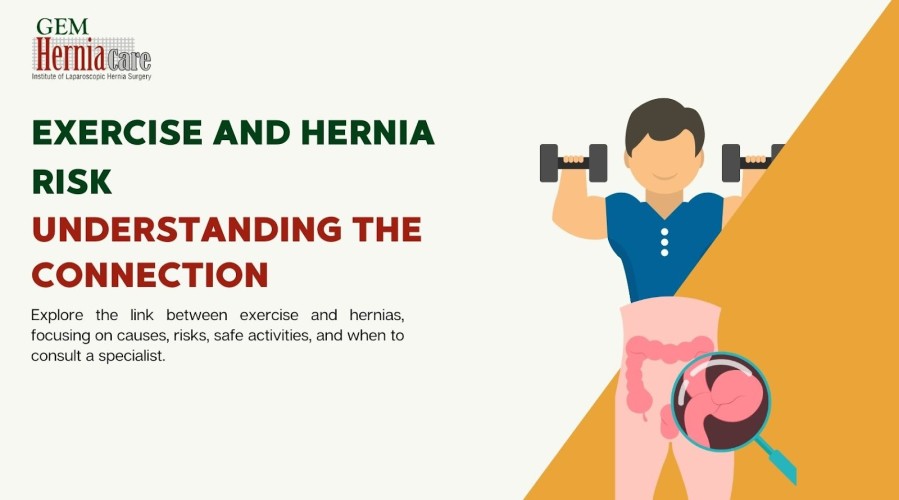Learn effective solutions for digestive problems with expert tips to improve gut health, reduce discomfort, and maintain a healthy digestive system.
Can Exercise Cause a Hernia or Make It Worse

Can Exercise Cause a Hernia or Make It Worse
Hernias can be a concerning health issue, especially for those who lead an active lifestyle or are new to exercising. Understanding the relationship between exercise and hernias is crucial to maintain both your fitness and health.
What is a Hernia?
A hernia occurs when an internal organ pushes through a weak spot in the surrounding muscle or tissue. The most common types are inguinal (groin), femoral (upper thigh), umbilical (belly button), and hiatal (upper stomach).
How Exercise Can Cause a Hernia
Certain exercises can put excessive strain on your abdominal muscles, increasing the risk of developing a hernia. Heavy lifting, intense core workouts, and high-impact sports are some activities that can lead to a hernia. The key risk factors include:
- Improper Technique: Using incorrect form while lifting weights can increase pressure on your abdomen.
- Heavy Lifting: Lifting heavy objects without proper support can lead to muscle tears.
- High-Impact Activities: Sports that involve sudden movements or heavy impacts can weaken abdominal muscles over time.
Can Exercise Make a Hernia Worse?
If you already have a hernia, some exercises might exacerbate the condition. Activities that increase intra-abdominal pressure can push the hernia further out, causing more pain and complications. Exercises to avoid include:
- Sit-ups and Crunches: These exercises put direct pressure on the abdominal area.
- Heavy Weightlifting: Particularly overhead lifting and squats, which can stress the abdominal wall.
- High-Intensity Interval Training (HIIT): The sudden and intense bursts of activity can aggravate a hernia.
Safe Exercises for People with Hernias
Staying active is important, even if you have a hernia. Opt for low-impact exercises that do not strain your abdomen, such as:
- Walking: Gentle on your body and helps maintain overall fitness.
- Swimming: Provides a full-body workout without stressing your abdominal muscles.
- Cycling: Low-impact and keeps you active.
- Yoga and Pilates: Focus on gentle stretching and strengthening without heavy lifting.
Preventing Hernias While Exercising
Preventing a hernia is better than treating one. Here are some tips to exercise safely:
- Use Proper Technique: Always use the correct form when lifting weights or performing exercises.
- Strengthen Core Muscles: Engage in exercises that strengthen your core without heavy strain, such as planks.
- Avoid Heavy Lifting: If you need to lift heavy objects, use your legs, not your back or abdominal muscles.
- Listen to Your Body: Pay attention to any pain or discomfort during exercise and stop if you feel any unusual strain.
When to See a Doctor
If you suspect you have a hernia, or if your current hernia symptoms worsen, it’s important to seek medical advice. Look for signs such as:
- Visible Bulge: A noticeable lump in your abdomen or groin.
- Pain: Especially when bending over, coughing, or lifting.
- Discomfort: Persistent discomfort or pressure in the affected area.
Schedule an Appointment with GEM Hospital
If you’re experiencing symptoms of a hernia or want advice on safe exercises, scheduling an appointment with a specialist is a wise step. At GEM Hospital, our experienced medical team can provide comprehensive care and personalized advice to help you maintain your health while staying active.
Blogs & Article
Explore current research trends in digestive health, including new treatments, advanced diagnostics, and innovations improving gut health and patient care.
Discover common digestive health myths and the real facts. Learn simple tips to improve gut health and maintain better digestion for a healthier life.


